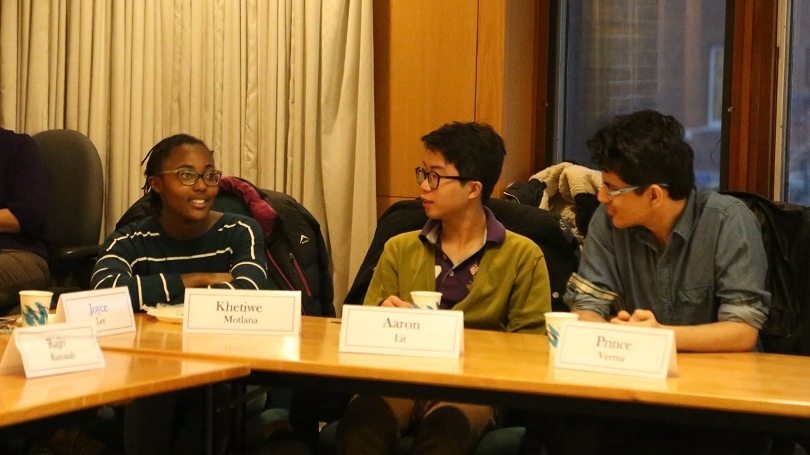
- Public Policy
- Leadership
- Funding
- News & Events
- About the Center
Back to Top Nav
Back to Top Nav
Back to Top Nav
Back to Top Nav
This week in the Rockefeller Global Leadership Program, we were challenged to think about ourselves and how our personal backgrounds shape the way we see the world, and impact the way we choose to engage with the world.
I think that I have a good cultural reference base for where a lot of my ideas and behaviors come from, but often I don’t notice how this cultural reference impacts the assumptions or judgments I may make about other people. Dr. Stuart Grande, Post-doctoral Fellow at the Dartmouth Institute, drew attention to the distinction between assumptions and judgments. The distinction is still something that I struggle to conceptualize in a real context. The assumptions I make about a person are based on the evidence that I see before me, along with the information that I have accumulated in the past. This however sounds very similar to a judgment making process, is it that judgments are perceived to be negative? I’m still not sure but I hope the distinction will be something that we get to explore more in other sessions.
The session emphasized that in order to build up one's cultural competency, people need to push themselves, and place themselves in environments where they are an outsider and maybe even slightly uncomfortable and see what happens. Dr. Grande specifically mentioned how we needed to be vulnerable. I think the take-away for me from the idea of being vulnerable is to acknowledge that in a lot of spaces I won’t be comfortable, but it is about more than being present, it is about going and asking the questions that my assumptions want to answer.
I think that going forward I hope to be slightly more conscious of how my own reference frame for life shapes how I see other people, and be more active in trying to fill the holes in my perceptions by seeking to incorporate new perspectives.
-Submitted by Khetiwe M. Motlana 'UG spring 2016 RGLP participant